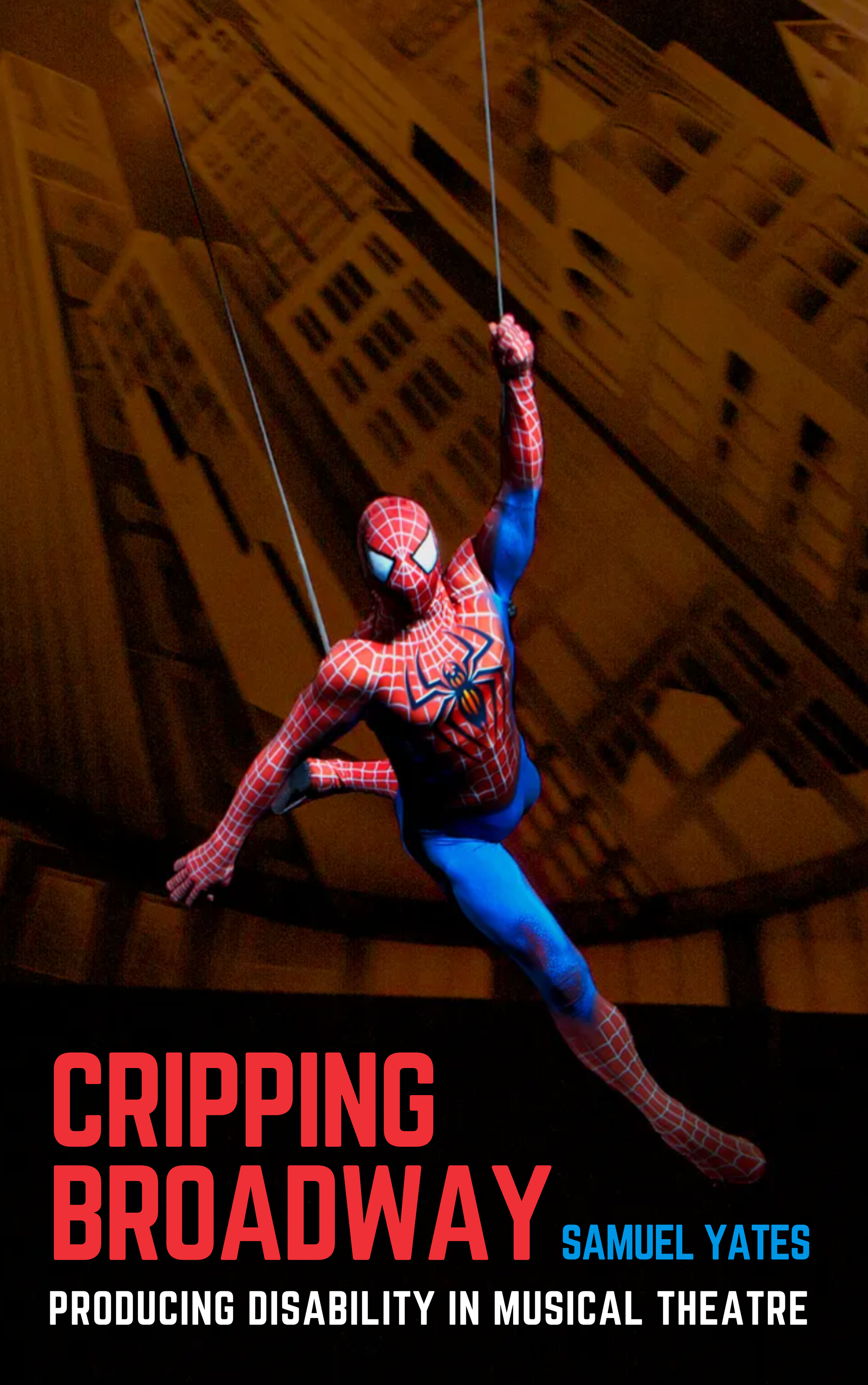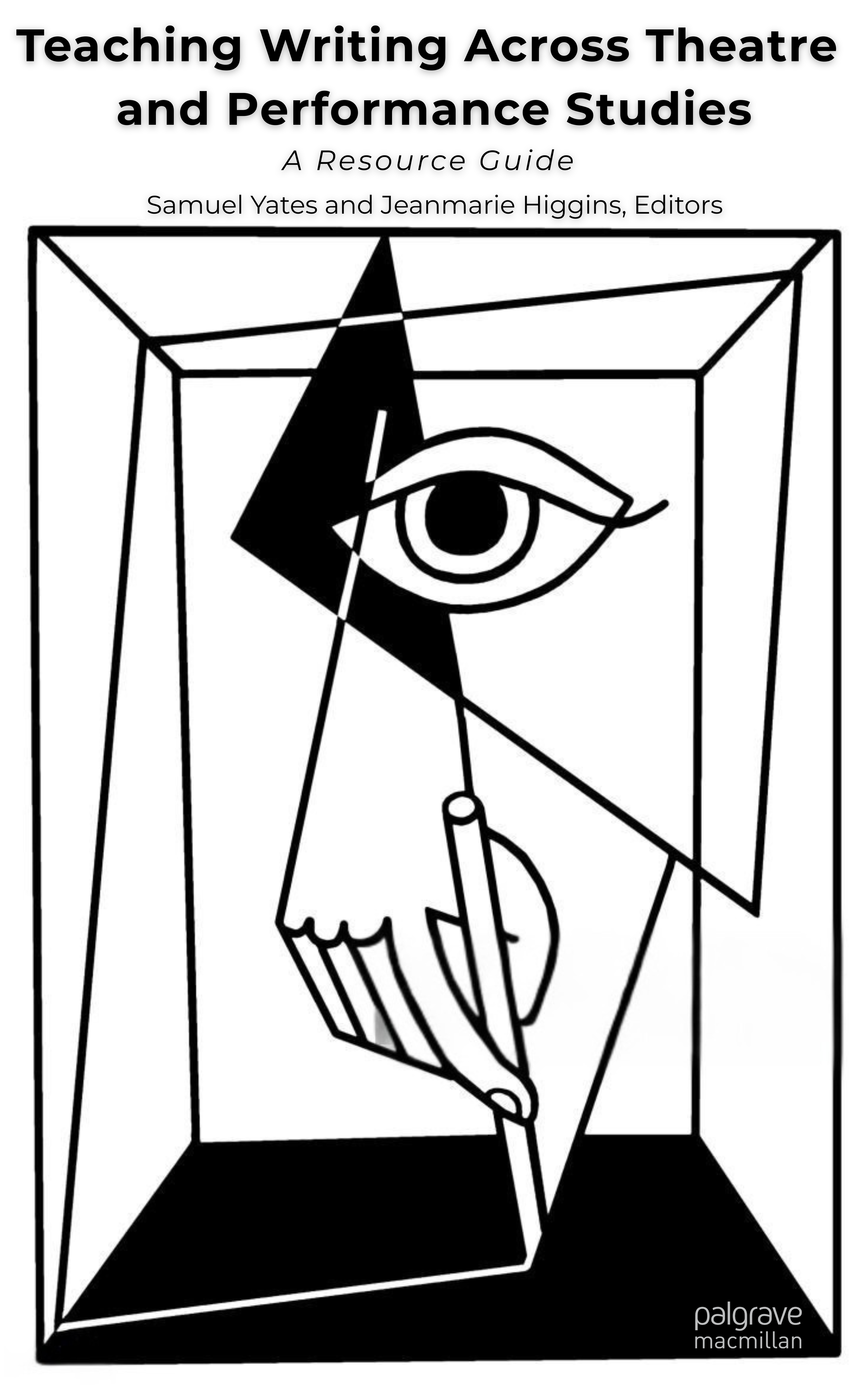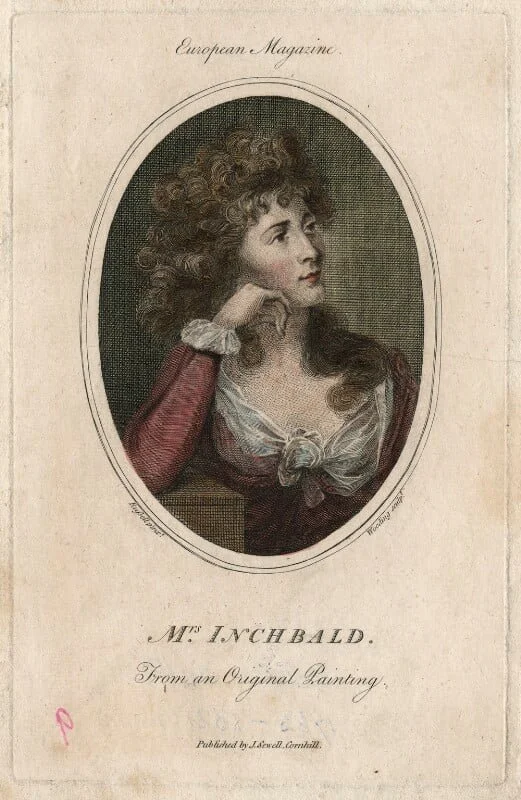
Book projects
Cripping broadway: Producing Disability in musical theatre
Under Contract
My first monograph, Cripping Broadway: Producing Disability in Musical Theatre, uses musicals to intervene in conversations about disability, gender, and race performance in U.S. American cultural production. By centering the Broadway musical and its industry expectations of the nondisabled triple-threat performer, we can identify the pervasiveness of able body in our creative and social imaginaries and recast our commitments to equitable representation in popular entertainment. As I argue throughout this book, academics, critics, and industry artists have long used methods of producing embodied differences like race and gender onstage to perceive disability onstage. Some of these tools, such as prosthetics and costuming, physically append the body in obvious, if problematic ways. Others, such as invocations of blackface minstrelsy and gender drag, seem to expand our critical consciousness about the production of difference on stage but create uneasy elisions around disability due to their political and ideological pressures. Cripping Broadway wields the polemics of “crip”—an affirmation of disability as a valuable and marginalized identity at the intersection of race, gender, and sexuality—and mobilizes it as an analytic tool for thinking with a theatrical industry that seems, on its surface, to have a contentious relationship to disability.
Teaching writing across theatre and performance studies: A resource Guide
In Press
This textbook is a collection of pedagogical essays that bridge Writing Studies curricula to Theatre and Performance Studies classrooms. From traditional Play Analysis and Theatre History courses that often require thesis-driven work to creative writing courses like Playwriting, writing is everywhere in Theater and Performance Studies. Yet, many of these courses–particularly in performance-centered BFA programs–fail to emphasize the tools common to writing studies programs that help students generate and refine new work. Focusing on cross-field “Writing in the Disciplines” and Critical University Studies approaches, this collection asks, What does disciplinary writing in Theatre and Performance Studies look like? How do our curricula, research, and pedagogy enable or hinder student flourishing?
Teaching Writing Across Theatre and Performance Studies features essays from scholars teaching at a range of institutions surveys both undergraduate and graduate TaPS classrooms for best practices and common pitfalls in writing instruction; provides practical lessons for teaching students the mechanics of research methods, editing, and revision; and offers course assignments and policies to support instructors seeking to enhance student writing within classes where composition and rhetoric may not be designated as explicit course topics or within its education goals. Contains 23 chapters and an appendix of original lesson plans for teaching research writing, dramaturgy and criticism, and applied arts writing in theatre, dance, and performance studies courses.
Strange Speech: Codemeshing Disability and Disorder
In Progress
Strange Speech: Codemeshing Disability and Disorder mobilizes antiracist theories of code-meshing and disability performance against speech and communication disorders to study embodied and combinatory forms of code-meshing in crip/queer performance. By asking how disability and race generate and shape linguistic forms that play in and through inaccessible social structures, I make legible the ‘crip’ embedded within our cultural “scripts.” Case studies include 18th and 19th-century U.S. American and British theatrical production, Writing Studies classrooms, Deaf Drag performances, slam poetry, radio, and popular tv and film. Early research for this project appears as “A Critical Guide to Code-meshing, Multilingualism, and Musicals,” pp. 359-74, in The Routledge Companion to Musical Theatre (Routledge 2022), edited by Laura MacDonald and Ryan Donovan. This work received the Honorable Mention for the 2023 Vera Mowry Roberts Research and Publication Award from the American Theatre and Drama Society for the best peer-reviewed theatre essay published in English. The project’s next stage, “‘Mend your speech’: Elizabeth Inchbald, Dysfluency, and the Remaking of Theatre History,” is supported by the 2023 Research Fellowship from the American Society for Theatre Research and a 2024-2025 Research Fellowship at the Folger Shakespeare Library in Washington, D.C.
audio drama
In Progress
This book argues that the future of literature is already audible. Audio Drama follows the arc from the intimacy of radio plays to the solitary companionship of the audiobook, and into the present resurgence of full-cast productions that conflate drama, narrative, and cinema. These hybrid literary productions are marketed under the familiar category of “audiobook” but adopt the promotional idioms of film—celebrity casting, full-orchestra cinematic soundtracks, and even immersive trailers. Productions by companies like Audible and Graphic Audio expand the literary form while erasing the distinctions that once marked page, stage, and broadcast. Even so, disability is central to this story. The audiobook we engage with today originated not as consumer convenience but as the Talking Book: an access technology designed to redefine how literature could be experienced by blind persons in an educational culture with little braille instruction. Disability aesthetics—typographic elisions, dysfluent voices, temporal shifts, sensory alternatives—continue to inform how audio works are written, performed, and received. Rather than treating accessibility as a retrofitted byproduct, Audio Drama positions it as constitutive of literary practice. Organized across four parts, I situate radio, audiobook, full-cast productions, and recorded theatre in a shared genealogy and demonstrate how listening practices, shaped by disability histories, unsettle what “counts” as literature and reading. By bringing disability studies into dialogue with sound studies and performance theory, Audio Drama reframes listening as a method for literary criticism—one that privileges embodiment, difference, and relationality over textual mastery. In doing so, I reimagine the relationship between sound and literature at a moment when audiobooks and audio dramas are converging into hybrid forms.



